Why the admirals are wrong
I received this very thoughtful letter from a dear ex-naval friend of mine, who takes a critical stab at understanding why today's class of admirals are opposed to restoring the royal designation to the Canadian navy.
The Truth of the Matter
I have been following this debate with much interest. What has kindled my interest particularly is the obvious, if not outright resistance, at least the clear non-enthusiasm for the idea of restoring the name RCN, of those recently retired flag officers who have appeared before the Senate commission. As the military is, in my experience, an institution fairly keen on “traditions” this non-enthusiasm has surprised me greatly. RCN is the name under which Canada’s naval forces saw their most important achievements. So what is really behind this? I have tried to give this some thought. Certainly the views of these former admirals must be taken seriously, especially inasmuch as they have suggested their views are shared by the majority of naval personnel today.
First of all: it simply cannot be that there is any distaste within military ranks for royal connections and references. If there were, we ought to be seeing many more signs of it. After all, it is not as though such connections are invisible or references rare in the CF, including the navy. Both enlisted personnel and officers begin their military service to Canada by swearing an oath of allegiance to the Her Majesty as Queen of Canada. I doubt that many of Canada’s officers, naval or other, many of whom of course become officers by graduating from the Royal Military College of Canada; stash their commissioning scrolls away out of sight, from embarrassment at the words prominently emblazoned across the top: “Elizabeth the Second, by the Grace of God of … Canada … Queen… to John Doe, hereby appointed an Officer in Her Majesty’s Canadian Armed Forces.” I doubt that navy, army or air force officers have stopped toasting the Queen’s health at every dining-in or mess dinner, or that a penchant has developed for crossing fingers or rolling eyes during the practice. There seems to be no resistance from the enlisted or officer ranks to serving on HMC Ships, or in any one of the various regiments of the army that carry the word ‘royal.’ In some cases, members of the Royal Family are regimental colonels-in-chief, and I suspect the spit-and-polish factor still goes higher, not lower, on those occasions when their royal patrons visit with and inspect them. I would also suggest that there is probably no meaningful collective difference in “attitude” on these points between anglophone and francophone members of the military, or as any function of where in the country they come from or how recently they or their families may have emigrated to Canada, and from where.
So it just does not make sense to me, it just cannot be, that RCN would generate any real feelings of discomfort or sense of unseemliness in the ranks due specifically to the royal reference. All of the admirals’ learned testimony about the twists and turns in the structure, status and naming of the navy over the past 100 years can have but little to do with attitudes of serving members today – few of whom, I should think, could themselves discourse about such matters on Parliament Hill. No, I believe that the admirals are not in fact concerned about reactions within the navy or the military at large, though certainly much of their testimony reads that way. I think the crux of the matter is this: what distinguishes RCN from all the other instances of ‘Royal’ in the CF cited above is that it would not be merely the quiet continuance of a status quo but would require affirmative political and therefore publicized action to establish. In this regard, I think the “we have bigger fish to fry” lines are quite revelatory. In short, I think that the concern is not with attitudes within the military: it is concern about the public’s attitude. Commander Thain’s testimony reflected this same conclusion.
To the extent I may be correct it still would be unfair to the admirals simply to say: the public’s attitude is the realm of parliament and the government, not yours. That would be unfair because they are correct to think the navy and its personnel would suffer from an adverse public reaction. They represent, after all, a generation of officers that in some respects has suffered greatly from and through unfriendly public and governmental attitudes toward the military, from the post-unification period through to what General Hillier called the “decade of darkness.” I can understand that, having at the end of their careers received better budgetary support and broader public sympathy for more active missions, they are anxious not to rock the boat.
But for all that their anxiety may be understandable, their thinking, as it pertains to contemporary public and present and future navy personnel attitudes on CN vs. RCN, is, I think, wrong. They are reflecting their own attitudes, which were formed by their own experiences; not those of the, effectively, two generations of officers and sailors who have followed them. These latter men and women have had much different experiences and in consequence they have different viewpoints. My sense is that for new recruits and new officers – many of whom, yes, are immigrants or the sons and daughters of immigrants from all parts of the world – RCN would carry none of the baggage that it does for the admirals. After all, those who are immigrants didn’t refuse their oaths of citizenship because it involved swearing allegiance to the Queen of Canada. No: they knew that Her Majesty was Queen of Canada (they had to take a test, remember!) and a part of today’s Canadian governmental structure and culture – not just history. They knew “royal” was part of what they were joining. My better judgment tells me that adding the R to CN would be a point of pride to most Canadians today – within or without the navy. (And it certainly seems that many serving junior officers have been telling Senator Day just that.) It would be seen not as a step backward – I think for most Canadians today, there would be no sense of a reversion to “colonialism.” No, I think it would be seen by most as, in its way, a proud step forward: the abolition of a misguided misstep from a period of Canadian history which the admirals understandably cannot forget but which most Canadians today are happy to move beyond.
In other words, where the admirals would see the Royal (Canadian) Navy, I think most Canadians today would see the Royal Canadian Navy – and I think they would prefer to include the “royal” qualifier precisely as part of what defines and proudly distinguishes the navy as Canada’s in its own right.

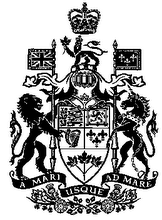


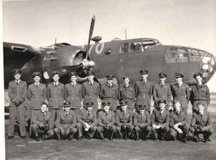

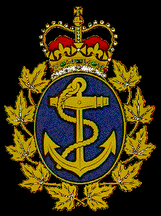




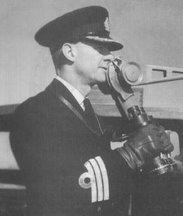
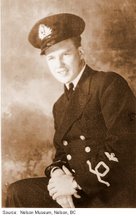


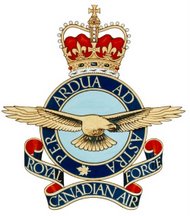

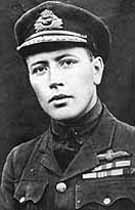
















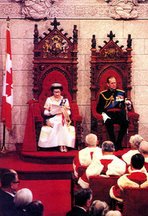
This man speaks the truth. I wish he could have spoken to the Senate. Well do and spot on. I support the Title Royal CANADIAN Navy (RCN). Canadain Navy or CN just does not cut it Cheers
ReplyDeleteGood piece. The hesistance of these retired admirals to speak in favour of RCN is quite pathetic. I spoke to one of them who said that RCN would never work because it would kill naval recruiting in Quebec. Really? Is that the kind of elementary school analysis they based their testimony on?
ReplyDeleteSo there are no francophones serving in the Royal 22nd Regiment (the Vandoos)? Not a single francophone has ever served in the RCN or RCAF? Jesus, Mary and Joseph it doesn't take a PhD in logic to poke holes in that admiral's argument. These clowns are simply closet republicans who hide behind the weakest imaginable arguments because their positions are indefensible.
ReplyDeleteFor those who believe adding the term ‘Royal’ to our Navy will somehow offend this country’s Franco phones, perhaps they should realize that the French Navy is to this day referred to as “La Royale” in France. Yes, the general populace of the French Republic refer to this institution by its pre-revolutionary, if unofficial, name. To the French, the British Royal Navy is: “l’autre Royale”. Therefore, in a very real sense restoring the royal honorific to our Navy’s name links it to both France and Britain. Was it not France’s La Royale that protected New France? Je me souviens ...really....? Should a Canadian “La Royale” not continue the tradition??
ReplyDelete